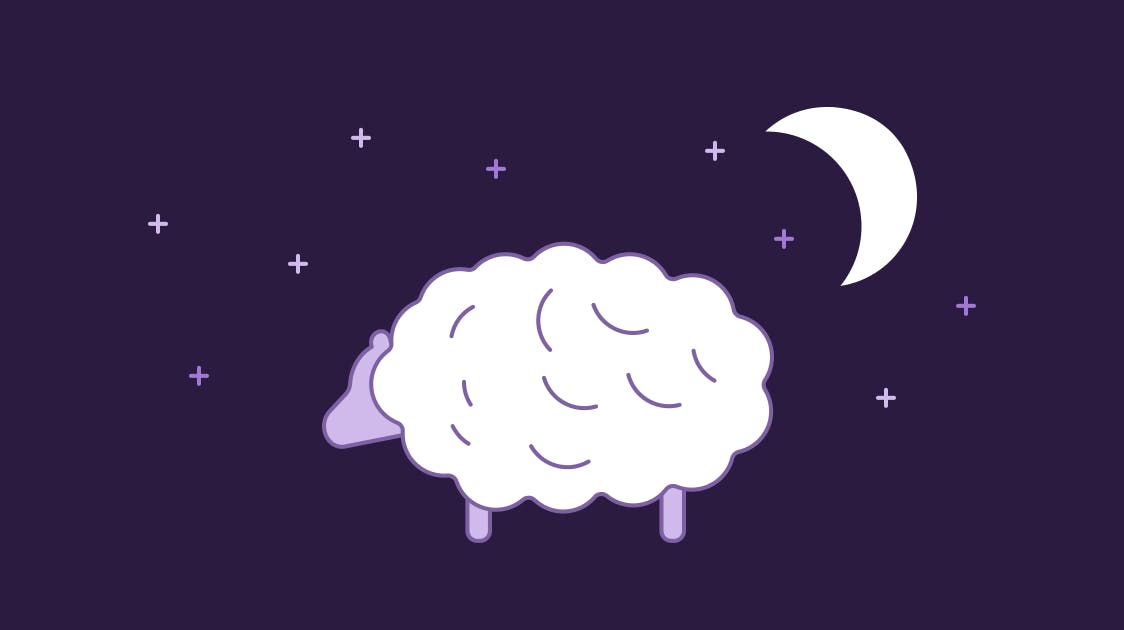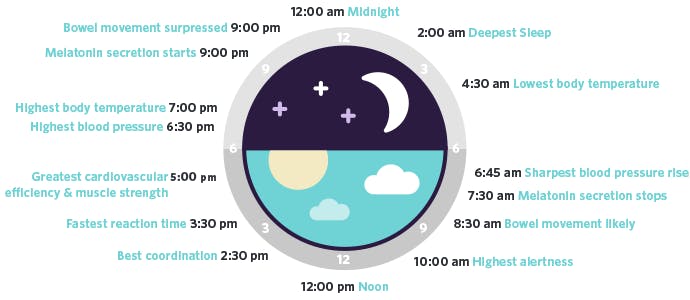Why Better Sleep Equals Better Work


A bad night of sleep is almost always a recipe for an unproductive day ahead. You know this all too well: you're groggy, you're irritable, you're making silly mistakes, and suddenly, simple tasks seem complicated.
You're not the only one. While the National Sleep Foundation reports we need seven to nine hours of sleep a night on average, many of us aren't getting nearly that much. Thirty percent of American adults report getting less than six hours of sleep at night, according to the Centers for Disease Control and Prevention.
A solid night of sleep isn't just important to your health and well-being; it's also a strategic workplace resource, according to Christopher Barnes and Gretchen Spreitzer in the MIT Sloan Management Review. "Organizations should both encourage and create a sleep-supportive culture and set of practices," they write. Losing as little as an hour of sleep a night has been linked to declines in memory, increased workplace injuries, and wasted time online.
Try the customer support platform your team and customers will love
Teams using Help Scout are set up in minutes, twice as productive, and save up to 80% in annual support costs. Start a free trial to see what it can do for you.
Try for free
What Lack of Sleep Is Costing Your Workplace (and Your Brain)
All this sleep depravation takes a massive toll on workplace productivity. The average American loses more than 11 days, or $2,280, in productivity each year due to lack of sleep, according to research by Harvard Medical School. Across the U.S., this sleep deprivation costs companies more than $63 billion annually.
But what is it costing your brain? According to psychiatrist Dan Siegel, researchers are just now beginning to understand the depths to which sleep (and the lack of it) affects the way we work:
Not only does getting between seven and nine hours of sleep a night let our active neurons rest, it also supports the glial cells that are crucial for cleaning up the neurotoxins that build up in our brains throughout the day. When we don’t get enough sleep, these glial cells can’t do their jobs, and we end up with impaired memories and attention spans.
And it's not simply your memory and alertness that suffer. Barnes and Spreitzer, management researchers at University of Washington’s Foster School of Business and University of Michigan’s Ross School of Business, say a lack of sufficient sleep also negatively impacts workplace culture and relationships, which can reduce trust and cooperation during negotiation—a major setback for anyone who is working closely with clients or colleagues.
A recent study out of the University of California Berkeley found that sleep deprivation actually dulls our ability to read facial expressions. “Recognizing the emotional expressions of someone else changes everything about whether or not you decide to interact with them, and in return, whether they interact with you,” says neuroscientist and psychologist Matthew Walker.
Ways to Get a Better Night’s Sleep
Now that we know why a good night’s sleep is so important, here are simple yet often overlooked steps you can take to ensure you’re getting the best sleep possible.
Know the rhythms of your body
Following your body's natural biological clock, or circadian rhythm, is key to making sure you're getting the right amount of sleep at the right time for your brain and body. This internal clock is what keeps us alert during the day and triggers us to unwind at night.

Keep in mind that when you don’t get enough light in the morning, too much light at night, travel across time zones, or maintain an irregular sleep schedule, you run the risk of disrupting your body's natural circadian rhythm.
Stick to a regular sleep schedule, even on weekends
Our bodies are sensitive to conditioning, which means we can mess with our circadian rhythm when we go to sleep and get out of bed at different hours each day. One common way people do this is by sleeping in on the weekends. Tempting as it may seem, if you normally get out of bed for work around 7 a.m. but you sleep in past 10 a.m. on the weekend, you start to shift your circadian rhythm and may find it hard to get to sleep on Sunday night.
It’s best to go to bed and wake up at roughly the same time, plus or minus 30 minutes every day.
Be careful when you nap
Rather than sleeping in on the weekend and throwing your circadian rhythm off track, try fitting in time for lost sleep when your body's rhythms call for it. According to Barnes and Spreitzer, "Naps that occur during natural dips in circadian rhythms, such as between 1 and 3 p.m., are especially effective."
What's more, it's important to try and keep naps to around 20 minutes to prevent the body from entering into deeper sleep that can result in sleep inertia, or feeling sluggish when you wake. "The idea is to wake up energized, not groggy," they write.
If you can’t sleep, get out of bed
This seems counterintuitive, but it's true. Often when we have trouble falling asleep, we lay in bed “trying” for hours. This is dangerous. If you find you can’t get to sleep for more than 15 or 20 minutes, get out of bed, says Daniel Taylor, associate professor of Psychology at the University of North Texas. Staying awake in bed for lengthy periods of time trains your mind to associate the bed with being awake and can lead to insomnia.
In general, think of your bed as a sacred space for sleep.
Avoid doing work or checking social media in bed. Once you start doing other things, your brain gets mixed signals about what it should be doing.
Give yourself an hour to unwind before bed
Don’t expect to go straight from working on your laptop to bed. An hour of time at night to unplug from your workday can help you have a better night of sleep, Taylor says. This could be anything from watching television to reading. The key is to stay out of your bed during this time and focus on activities that wind you down rather than stimulate your mind.
Let your phone sleep, too
According to researcher Leslie Perlow, 26% of people report sleeping with their phones, 56% check their phones within an hour of going to bed, and 70% check their phones within an hour of waking in the morning.
Perlow, author of the book Sleeping With Your Smartphone, describes this need to feel always “on” as a “cycle of responsiveness." The more immediate your response to an email, say, the more people expect you always be available. In other words: you're digging your own grave.
The result, not surprisingly, is that your sleep suffers. A forthcoming sleep study in Computers and Human Behavior tracked the digital usage patterns of university students and their sleep. The researchers found that looking at screens, particularly in the hour before sleep, contributed to poorer and disrupted sleep.
Get plenty of daylight in the morning
Morning light helps you reset your biological clock. You can think of it as the first deposit in your sleep bank for the day. Once you see bright light filtering in, your brain begins to register that it’s time to be awake and you start building up that reserve of wakefulness that goes toward a productive sleep the next night.
So while waking up and getting a dose of sunshine in the morning might not seem connected to your ability to sleep the following night, it most certainly has an affect, says William Kohler, medical director of the Florida Sleep Institute.
Keep your room cooler at night
Most of us keep the house at a temperature warm enough to walk around barefoot comfortably. But at night, when going to sleep, this is too warm, according to Michael Perlis, director of the Behavioral Sleep Medicine Program at the University of Pennsylvania. “Sleep loves the cold,” he says. “The colder the better.”
This is because our internal body temperature decreases as we sleep. Perlis also recommends increasing your body temperature within an hour of sleep, which could help it cool down more effectively. Taking a hot bath before bed is a good way to do this. “Anything that drives your body temperature up within an hour of sleep is likely to deepen your sleep,” he says.
If you're feeling groggy and unfocused at work, chances are the first thing you need to do is take a closer look at how and when you're sleeping. Most importantly, listen to what your body needs. Make good sleep a priority, and your workday will no doubt benefit.
The Supportive Weekly: A newsletter for people who want to deliver exceptional customer service.